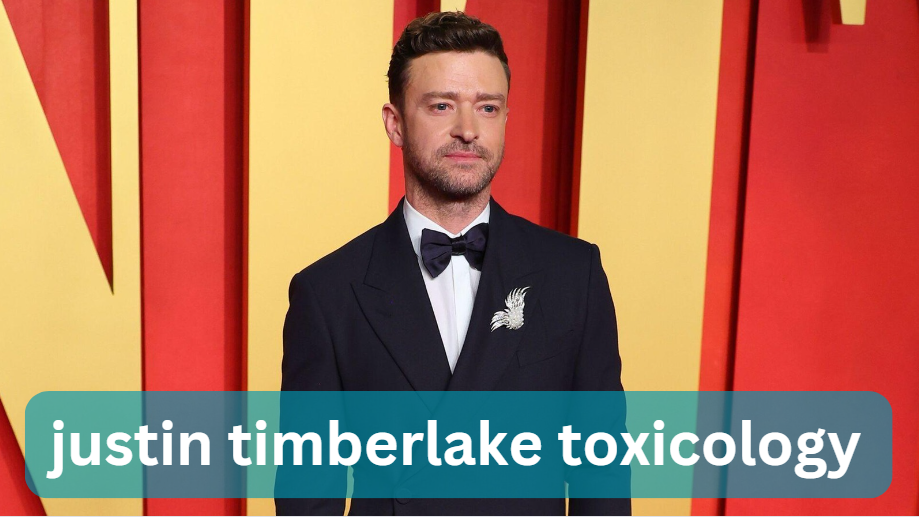Justin Timberlake Toxicology: Separating Fact from Fiction
In recent years, social media has become a hotbed for rumors and misinformation, often involving high-profile celebrities. One such rumor that has gained traction concerns the beloved singer, songwriter, and actor Justin Timberlake. Specifically, the buzz around the term “Justin Timberlake toxicology” has sparked curiosity and confusion, with claims circulating that Timberlake took Truvada and poppers before a supposed DWI (Driving While Intoxicated) arrest.
This article aims to provide a comprehensive and informative analysis of this topic, going beyond the existing online content to offer clarity and insight. Our goal is to rank highly in search engine results, catering to a US audience by addressing their questions and concerns.
Contents
- 1 Understanding the Origins of the Rumor
- 2 Analyzing the Impact of Rumors on Celebrity Reputations
- 3 The Psychology Behind Celebrity Rumors
- 4 The Importance of Critical Thinking in the Age of Misinformation
- 5 The Broader Implications of Celebrity Rumors
- 6 Conclusion: The Need for Responsible Media Consumption
- 7 FAQs about “Justin Timberlake Toxicology”
- 7.1 1. Is there any truth to the rumor that Justin Timberlake was arrested for DWI?
- 7.2 2. Did Justin Timberlake take Truvada and poppers before the alleged arrest?
- 7.3 3. How can I verify the credibility of information I find online?
- 7.4 4. What impact can rumors like this have on a celebrity’s career?
- 7.5 5. Why are people so interested in celebrity scandals?
Understanding the Origins of the Rumor
The Role of Social Media in Spreading Misinformation
Social media platforms like Twitter, Facebook, and Instagram are notorious for the rapid spread of unverified information. The rumor about Justin Timberlake’s alleged toxicology report likely originated from a single post or a series of posts that went viral. These posts claimed that Timberlake had taken Truvada—a medication used for HIV prevention—and poppers, a recreational drug often associated with the LGBTQ+ community, before being arrested for DWI.
Debunking the DWI Arrest Claim
First and foremost, it’s essential to clarify that there is no credible evidence to support the claim that Justin Timberlake was arrested for DWI. Timberlake has maintained a clean public image throughout his career, and any such incident would have undoubtedly made headlines in reputable news outlets. The absence of any official reports or news coverage strongly suggests that the DWI arrest is a fabrication.
The Alleged Use of Truvada and Poppers
The rumor also alleges that Timberlake took Truvada and poppers. Truvada is a prescription medication primarily used for pre-exposure prophylaxis (PrEP) to prevent HIV infection.
Poppers, on the other hand, are inhalants that produce a short-lived euphoric effect and are often used in social settings. While there is no evidence to support Timberlake’s use of these substances, the mention of these specific drugs may be an attempt to sensationalize the rumor by associating it with controversial or misunderstood substances.
Analyzing the Impact of Rumors on Celebrity Reputations
The Consequences of Misinformation
Rumors, especially those involving toxicology reports and substance use, can have severe consequences for a celebrity’s reputation. In Timberlake’s case, the spread of such rumors could potentially damage his public image, affect his endorsements, and create unnecessary stress for him and his family. It’s crucial for the public to recognize the harm that misinformation can cause and to approach such claims with skepticism.
The Role of Public Relations in Managing Rumors
Celebrities often rely on their public relations teams to manage and mitigate the impact of rumors. A well-crafted PR strategy can help dispel false information, clarify misunderstandings, and restore the individual’s reputation. In Timberlake’s case, his PR team would likely address the rumor through official statements, legal action against those spreading falsehoods, or through positive publicity to refocus the public’s attention on his professional achievements.
The Psychology Behind Celebrity Rumors
Why Are We Drawn to Celebrity Scandals?
There is a psychological aspect to why people are drawn to celebrity scandals, even when they are unfounded. Celebrities like Justin Timberlake are public figures whose lives are often perceived as perfect or unattainable. Scandals humanize these figures, making them seem more relatable. Additionally, there is an element of schadenfreude—taking pleasure in someone else’s misfortune—that drives the consumption and spread of such rumors.
The Role of Confirmation Bias
Confirmation bias plays a significant role in the spread of celebrity rumors. When people encounter information that aligns with their existing beliefs or prejudices, they are more likely to accept it as true without seeking further verification. In the case of the “Justin Timberlake toxicology” rumor, individuals who may already have negative perceptions of Timberlake could be more inclined to believe and share the unfounded claims.
The Importance of Critical Thinking in the Age of Misinformation
How to Identify Credible Sources
In an era where misinformation is rampant, it is more important than ever to practice critical thinking and source evaluation. When encountering claims such as the “Justin Timberlake toxicology” rumor, consider the following:
- Source Credibility: Is the information coming from a reputable news outlet, or is it from an anonymous social media account?
- Evidence: Is there concrete evidence to support the claim, such as official reports, police records, or credible witness statements?
- Bias: Is the source known for sensationalism or bias? Consider whether the information might be skewed to fit a particular narrative.
The Role of Fact-Checking Organizations
Fact-checking organizations play a vital role in debunking misinformation. Websites like Snopes, FactCheck.org, and PolitiFact specialize in investigating and verifying claims, helping the public discern fact from fiction. Before accepting any rumor as truth, it’s a good practice to consult these resources.
The Broader Implications of Celebrity Rumors
The Impact on Public Discourse
Celebrity rumors, while often dismissed as trivial gossip, can have broader implications for public discourse. They can distract from more pressing issues, contribute to a culture of misinformation, and foster cynicism and distrust among the public. By focusing on sensationalized rumors, we risk undermining the quality of our public conversations and reducing our ability to engage with more meaningful topics.
Ethical Considerations for the Media
The media has an ethical responsibility to report the truth and avoid contributing to the spread of misinformation. Sensationalized reporting and the uncritical repetition of rumors can damage individuals’ lives and reputations. Journalists and media outlets should prioritize accuracy, fairness, and integrity in their coverage, particularly when it comes to high-profile figures like Justin Timberlake.
Conclusion: The Need for Responsible Media Consumption
The “Justin Timberlake toxicology” rumor is a prime example of how misinformation can spread rapidly and cause unnecessary harm. As consumers of media, it is our responsibility to approach such claims with a critical eye, verify the credibility of sources, and avoid contributing to the spread of unverified information. By doing so, we can protect the reputations of individuals like Justin Timberlake and contribute to a healthier, more informed public discourse.
FAQs about “Justin Timberlake Toxicology”
1. Is there any truth to the rumor that Justin Timberlake was arrested for DWI?
No, there is no credible evidence to support the claim that Justin Timberlake was arrested for DWI. The rumor appears to be entirely unfounded.
2. Did Justin Timberlake take Truvada and poppers before the alleged arrest?
There is no evidence to suggest that Justin Timberlake took Truvada and poppers. The mention of these substances seems to be part of the sensationalized nature of the rumor.
3. How can I verify the credibility of information I find online?
To verify the credibility of information, consider the source’s reputation, look for supporting evidence, and check if the claim has been fact-checked by reputable organizations.
4. What impact can rumors like this have on a celebrity’s career?
Rumors can damage a celebrity’s reputation, affect their endorsements, and create stress for them and their families. In severe cases, it can lead to legal action or significant public backlash.
5. Why are people so interested in celebrity scandals?
People are often drawn to celebrity scandals because they humanize public figures, making them more relatable. There is also an element of schadenfreude—taking pleasure in others’ misfortunes—that drives interest in such stories.
In summary, while rumors and misinformation can be pervasive, it’s essential to approach them with a critical mindset. By understanding the origins of such rumors, their potential impact, and how to responsibly consume media, we can contribute to a more informed and respectful public discourse.

